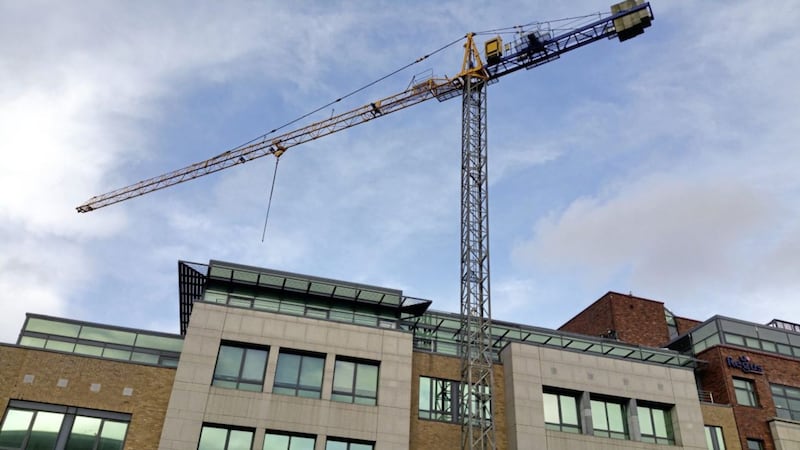CONSTRUCTION workloads in the north have fallen for the first time in four years, with the blame laid at the feet of our local politicians.
According to the latest RICS (Royal Institution of Chartered Surveyors) and Tughans Northern Ireland Construction and Infrastructure Market Survey there was a marginal overall fall in construction workloads, but a significant reduction in both infrastructure (a net balance of -33 per cent) and public-non-housing workloads (a net balance of -33 per cent).
A lack of investment in infrastructure in Northern Ireland due to the lack of a Stormont government has been cited as one of the key reasons for the decline, while 46 per cent of respondents stated that shortages of skills were an impediment to growth.
Workloads were also falling in the public housing sub-sector in the second quarter of the year according to a net balance of -13 per cent of surveyors.
The survey points to a broad-based deceleration in the construction sector across the UK, but Northern Ireland was the only region where workloads fell in the quarter. Northern Ireland was also the only UK region where infrastructure and public-non-housing workloads were in negative territory.
Private housing was the only construction sub-sector where activity increased according to the survey, with private commercial and private industrial workloads reported to be flat.
Chair of RICS in Northern Ireland Andy Tough said the fall in workloads has been impacted by the Stormont impasse.
"A lack of investment in infrastructure in Northern Ireland is a long-standing issue, but anecdotal evidence from chartered surveyors suggests that the current political situation in Northern Ireland is a factor. However, there are a number of other factors impacting on the local construction as well, including the slowdown in other parts of the UK where local firms are active, uncertainty in relation to Brexit and challenges in the planning process.”
“In relation to infrastructure, the recently announced additional money for Northern Ireland from Westminster looks set to provide a welcome boost for investment, but we also want to see a local Executive in place to ensure the delivery of long-term policies and decision-making that are vital to the development and growth of the economy,” he said.
Tim Kinney, construction partner at Tughans Solicitors urged our local politicians to form an Executive to support investment.
"The construction sector remains crucial to the local economy in terms of employment, its supply chain, and the benefits it delivers to society, and government must play its role in creating an enabling environment so that essential investment, including in infrastructure, can happen.”







